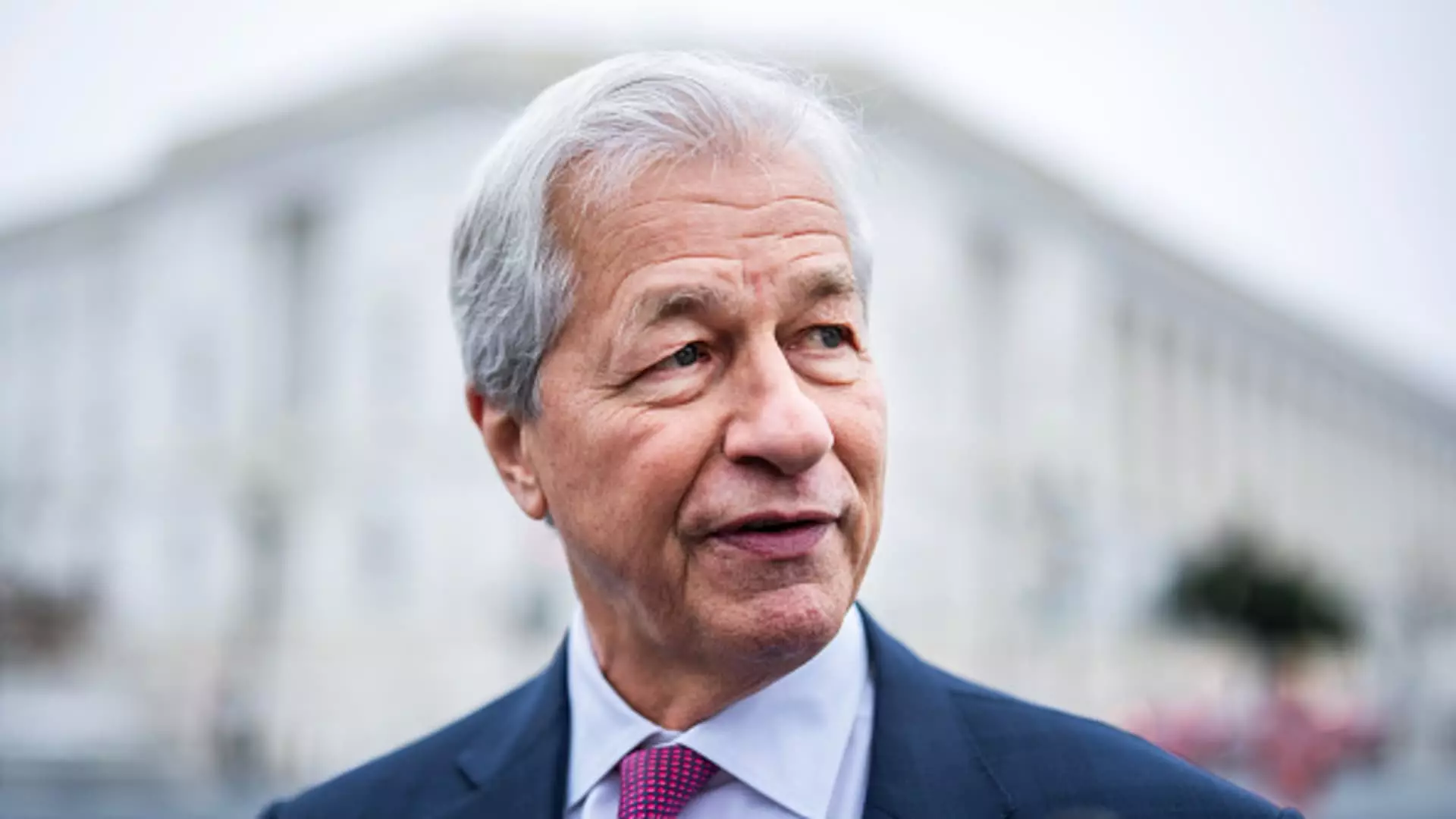In a recent interview, Jamie Dimon, CEO of JPMorgan Chase, articulated a critical view of the U.S. government’s operational efficiency. This evaluation comes at a time when the federal landscape is undergoing considerable transformation, particularly under the Trump administration’s initiatives aimed at restructuring government agencies. Dimon’s remarks shine a spotlight on the pressing need for reforms in government functions, especially as agencies such as the Consumer Financial Protection Bureau face potential dismantling.
Dimon highlighted the government’s ineffectiveness as pivotal to the discussion, asserting that it’s not merely a question of budgetary waste or fraudulent activities—but also one concerning overall outcomes. He expressed a sense of urgency about re-evaluating the goals and functions of federal agencies, emphasizing that taxpayer dollars should yield tangible results. This perspective invites a comprehensive examination of how governmental resources are allocated and whether they align with the needs of the populace.
Throughout the CNBC interview, hosted by Leslie Picker, Dimon raised questions about the rationale behind federal spending. He urged for more vigorous scrutiny of financial outlays, asking crucial questions about their effectiveness and the returns they generate for citizens. “Why are we spending money on these things? Are we getting what we deserve?” he probed, suggesting that it is imperative for policymakers to actively reflect on these issues.
His belief that effective governance transcends merely addressing the deficit is emblematic of a broader philosophical stance: good governance requires a thoughtful and strategic approach to crafting policies and establishing procedural guidelines. This commentary resonates with a wider discourse on the necessity for efficiency in government departments, which have often been criticized for obsolescence and lack of accountability.
Dimon was also queried about the Department of Government Efficiency (DOGE), an advisory group associated with Elon Musk. While he refrained from a binary endorsement of DOGE’s initiatives, his supportive statements hinted at optimism regarding its potential impact on government efficiency. He did caution, however, that aggressive cost-cutting measures must remain within legal boundaries, acknowledging a delicate balance between reform and overreach.
As Dimon remarked, “I’m hoping it’s quite successful,” underscoring a commitment to the prospect of enhanced governmental functionality. His assertion reflects a growing corporate sentiment that aligning business efficiency standards with public sector performance could forge better outcomes for all stakeholders involved.
Apart from discussing government efficiency, Dimon also touched on various topics affecting both his corporation and the broader economy. He reiterated the importance of in-office work, advocating for a return to traditional workplace structures. Additionally, he addressed external issues such as the conflict in Ukraine, tariffs, and consumer behavior.
Dimon’s insights combine to present a compelling narrative about the intersection of business, government, and societal challenges. His advocacy for governmental reform echoes larger calls for accountability and efficiency in public service, illustrating a critical nexus where private sector insights may inform and enhance public sector strategies. In a rapidly changing world, the ability to adapt and innovate within government frameworks could prove crucial to fostering a resilient economy that serves its constituents effectively.

